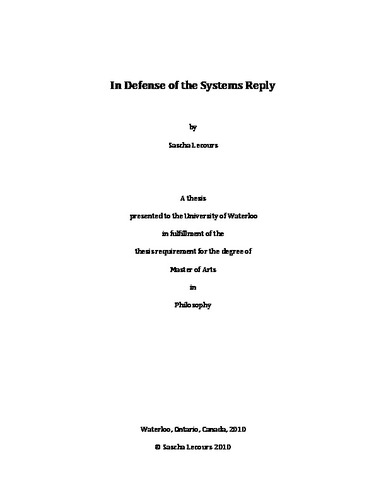| dc.description.abstract | In John Searle’s Minds, Brains, and Programs, he argues against the possibility of a digital computer capable of understanding. In particular, Searle puts forward the Chinese room thought experiment, which appears to neatly dismiss the concept of a machine made to manipulate symbols thereby obtaining a mind. This thesis replies to Minds, Brains, and Programs by critically examining the Chinese room experiment and the conclusions Searle draws from it. This paper defends what Searle fterms the “systems reply” to the Chinese room, which proposes that in the Chinese room thought experiment, the total system of operator, instructions, and input-output may achieve understanding even if the operator alone does not. The defence of the systems reply requires rebutting Searle’s direct objections to it as well as a more general account of the possibility of obtaining semantic content from what appear to be a purely syntactic manipulations. | en |

